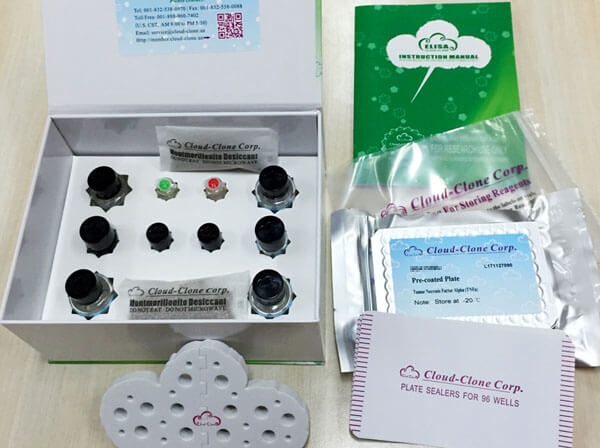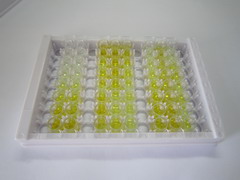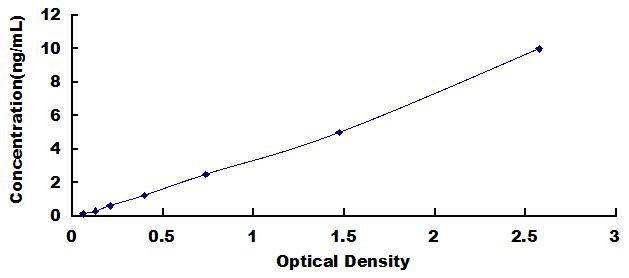ELISA Kit for Catalase (CAT) 

- UOM
- FOB US$ 532.00 US$ 760.00 US$ 3,420.00 US$ 6,460.00 US$ 53,200.00
- Quantity
Overview
Properties
- Product No.SEC418Ra
- Organism SpeciesRattus norvegicus (Rat) Same name, Different species.
- ApplicationsEnzyme-linked immunosorbent assay for Antigen Detection.
Research use only - DownloadInstruction Manual
- CategoryEnzyme & KinaseMetabolic pathwayHepatology
Sign into your account
Share a new citation as an author
Upload your experimental result
Review

Contact us
Please fill in the blank.
Recovery
Matrices listed below were spiked with certain level of recombinant Catalase (CAT) and the recovery rates were calculated by comparing the measured value to the expected amount of Catalase (CAT) in samples.
| Matrix | Recovery range (%) | Average(%) |
| serum(n=5) | 86-95 | 91 |
| EDTA plasma(n=5) | 86-103 | 99 |
| heparin plasma(n=5) | 78-94 | 88 |
Precision
Intra-assay Precision (Precision within an assay): 3 samples with low, middle and high level Catalase (CAT) were tested 20 times on one plate, respectively.
Inter-assay Precision (Precision between assays): 3 samples with low, middle and high level Catalase (CAT) were tested on 3 different plates, 8 replicates in each plate.
CV(%) = SD/meanX100
Intra-Assay: CV<10%
Inter-Assay: CV<12%
Linearity
The linearity of the kit was assayed by testing samples spiked with appropriate concentration of Catalase (CAT) and their serial dilutions. The results were demonstrated by the percentage of calculated concentration to the expected.
| Sample | 1:2 | 1:4 | 1:8 | 1:16 |
| serum(n=5) | 93-102% | 78-91% | 84-95% | 94-102% |
| EDTA plasma(n=5) | 90-99% | 88-95% | 78-104% | 83-104% |
| heparin plasma(n=5) | 80-95% | 97-105% | 95-102% | 96-105% |
Stability
The stability of kit is determined by the loss rate of activity. The loss rate of this kit is less than 5% within the expiration date under appropriate storage condition.
To minimize extra influence on the performance, operation procedures and lab conditions, especially room temperature, air humidity, incubator temperature should be strictly controlled. It is also strongly suggested that the whole assay is performed by the same operator from the beginning to the end.
Reagents and materials provided
| Reagents | Quantity | Reagents | Quantity |
| Pre-coated, ready to use 96-well strip plate | 1 | Plate sealer for 96 wells | 4 |
| Standard | 2 | Standard Diluent | 1×20mL |
| Detection Reagent A | 1×120µL | Assay Diluent A | 1×12mL |
| Detection Reagent B | 1×120µL | Assay Diluent B | 1×12mL |
| TMB Substrate | 1×9mL | Stop Solution | 1×6mL |
| Wash Buffer (30 × concentrate) | 1×20mL | Instruction manual | 1 |
Assay procedure summary
1. Prepare all reagents, samples and standards;
2. Add 100µL standard or sample to each well. Incubate 1 hours at 37°C;
3. Aspirate and add 100µL prepared Detection Reagent A. Incubate 1 hour at 37°C;
4. Aspirate and wash 3 times;
5. Add 100µL prepared Detection Reagent B. Incubate 30 minutes at 37°C;
6. Aspirate and wash 5 times;
7. Add 90µL Substrate Solution. Incubate 10-20 minutes at 37°C;
8. Add 50µL Stop Solution. Read at 450nm immediately.

Test principle
The test principle applied in this kit is Sandwich enzyme immunoassay. The microtiter plate provided in this kit has been pre-coated with an antibody specific to Catalase (CAT). Standards or samples are then added to the appropriate microtiter plate wells with a biotin-conjugated antibody specific to Catalase (CAT). Next, Avidin conjugated to Horseradish Peroxidase (HRP) is added to each microplate well and incubated. After TMB substrate solution is added, only those wells that contain Catalase (CAT), biotin-conjugated antibody and enzyme-conjugated Avidin will exhibit a change in color. The enzyme-substrate reaction is terminated by the addition of sulphuric acid solution and the color change is measured spectrophotometrically at a wavelength of 450nm ± 10nm. The concentration of Catalase (CAT) in the samples is then determined by comparing the O.D. of the samples to the standard curve.
Giveaways
Increment services
-
 Single-component Reagents of Assay Kit
Single-component Reagents of Assay Kit
-
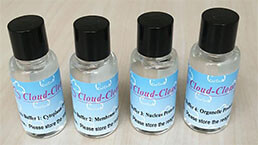 Lysis Buffer Specific for ELISA / CLIA
Lysis Buffer Specific for ELISA / CLIA
-
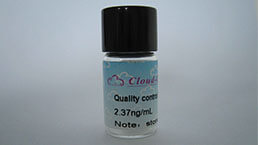 Quality Control of Kit
Quality Control of Kit
-
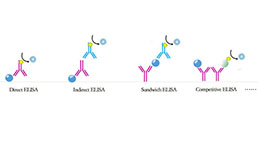 ELISA Kit Customized Service
ELISA Kit Customized Service
-
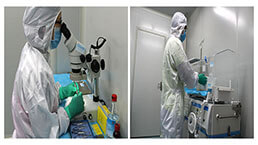 Disease Model Customized Service
Disease Model Customized Service
-
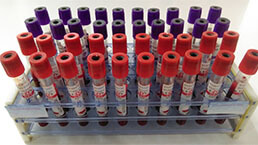 Serums Customized Service
Serums Customized Service
-
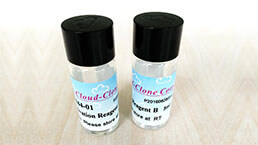 TGFB1 Activation Reagent
TGFB1 Activation Reagent
-
 Real Time PCR Experimental Service
Real Time PCR Experimental Service
-
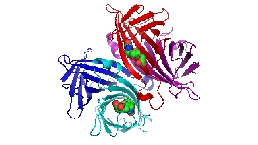 Streptavidin
Streptavidin
-
 Fast blue Protein Stain solution
Fast blue Protein Stain solution
-
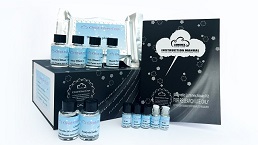 Single-component Reagents of FLIA Kit
Single-component Reagents of FLIA Kit
-
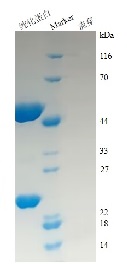 Streptavidin-Agarose Beads
Streptavidin-Agarose Beads
Citations
- Proteomic Analysis of Polymorphonuclear Neutrophils Identifies Catalase as a Novel Biomarker of Abdominal Aortic AneurysmAhajournals: source
- Phloroglucinol protects gastric mucosa against ethanol-induced injury through regulating myeloperoxidase and catalase activitiesPubMed: 20880383
- Antioxidant profile of salivary glands in high fat diet-induced insulin resistance ratsPubmed: 24106991
- Iodinated contrast media can induce long-lasting oxidative stress in hemodialysis patients.Pubmed: 24142649
- Grape seed extract and Zinc containing nutritional food supplement delays onset and progression of Streptozocin-induced diabetic cataract in Wistar ratsSpringer: Source
- 过氧化氢酶基因 389C>T多态位点在重庆汉族人群中的分布及其与噪音性耳聋的 关联研究Tmmu:Source
- Genetic polymorphisms (Pro197Leu of Gpx1, +35A/C of SOD1, PubMed: 26674569
- Antioxidant profile, carbonyl and lipid oxidation markers in the parotid and submandibular glands of rats in different periods of streptozotocin induced diabetesPubMed: 26143097
- Impact of morbid obesity and bariatric surgery on antioxidant/oxidant balance of the unstimulated and stimulated human salivaPubMed: 26608886
- КЛИНИЧЕСКОЕ ЗНАЧЕНИЕ ФАКТОРОВ КЛЕТОЧНОЙ РЕГУЛЯЦИИ И ФЕРМЕНТОВ АНТИОКСИДАНТНОЙ СИСТЕМЫ У ПАЦИЕНТОК РЕПРОДУКТИВНОГО ВОЗРАСТА С НАРУЖНЫМ ГЕНИТАЛЬНЫМ ЭНДОМЕТРИdocs:225188
- Comparison of Extracellular and Intracellular Blood Compartments Highlights Redox Alterations in Alzheimer's and Mild Cognitive Impairment Patients.pubmed:27748187
- Effect of Indole-3-carbinol and/or Metformin on Female Patients with Ulcerative Colitis (Premalignant Condition): Role of Oxidative Stress, Apoptosis and Proinflammatory Cytokinesjcrt:5
- Orthodontic treatment modifies the oxidant-antioxidant balance in saliva of clinically healthy subjects.pubmed:28242484
- Laminarin protects against hydrogen peroxide-induced oxidative damage in MRC-5 cells possibly via regulating NRF2pubmed:28785522
- Evaluation of ADMA, carbonyl groups, CAT and NKA in depressed patients with and without posttraumatic stress disorder.pubmed:28554099
- Biochemical and molecular alterations in freshwater mollusks as biomarkers for petroleum product, domestic heating oilPubmed:29660615
- Multi-biomarker responses after exposure to organophosphates chlorpyrifos in the freshwater mussels and snails10.1080:10807039.2018.1460800
- Effects of ginsenoside Rb1 on oxidative stress injury in rat spinal cords by regulating the eNOS/Nrf2/HO‑1 signaling pathwayPubmed:30116359
- A red pumpkin seed extract reduces melanosome transfer to keratinocytes by activation of Nrf2 signalingPubmed:30047218
- Cholecystectomy Patients with High Plasma Level of Catalase Have Significantly Lower Analgesia Requirement: A Prospective Study of Two Different …Pubmed: 30194197
- Plasma Catalase in Relation to Pain Following Midline Laparotomy: A Prospective Study of Patients with Benign Diseases and Patients with CancerPubmed: 30396975
- Effects of Tualang honey in modulating nociceptive responses at the spinal cord in offspring of prenatally stressed ratsDoi: 10.1016/j.joim.2018.12.002
- Protective effects of sulforaphane on diabetic retinopathy: activation of the Nrf2 pathway and inhibition of NLRP3 inflammasome formationPubmed: 30606939
- An in vitro protocol to study the effect of hyperglycemia on intracellular redox signaling in human retinal pigment epithelial (ARPE-19) cellsPubmed: 30628023
- Nitrotyrosine (NT), a Nitrosative Stress Biomarker, Plasma Concentrations in Gallstone Disease and Cancer PatientsPubmed: 30711961
- Rectus Sheath Block (RSB) Analgesia Could Enhance Significantly the Patient Satisfaction Following Midline Laparotomy in Benign Disease and in Cancer: A …Pubmed: 30842172
- MicroRNA‑21 contributes to the puerarin‑induced cardioprotection via suppression of apoptosis and oxidative stress in a cell model of ischemia/reperfusion injuryPubmed: 31115556
- Selected elements of extracellular matrix of the skin in diabetes and insulin resistancePubmed: 31146169
- European Journal of Biomedical AND Pharmaceutical sciences
- The Rectus Sheath Block (RSB) Analgesia Following Laparotomy Could Affect Malonidialdehyde (MDA) Concentrations in Benign Disease and CancerPubmed: 31892574
- A Machine Learning-driven Study Indicates Emodin Improves Cardiac Hypertrophy by Modulation of Mitochondrial SIRT3 SignalingPubmed: 32135248
- Arachidonic Acid as an Early Indicator of Inflammation during Non-Alcoholic Fatty Liver Disease DevelopmentPubmed: 32751983
- AMELIORATIVE EFFECT OF AQUEOUS EXTRACT OF HIBISCUS SABDARIFFA (ROSELLE) ON SALT-INDUCED HYPERTENSION IN WISTAR RATS
- In Vitro Cell Culture Study of Anticholesterol and Antioxidant Activities of Myrmecodia platytyrae (MyP) Extract in WRL-68 Cells
- Lutein reverses hyperglycemia-mediated blockage of Nrf2 translocation by modulating the activation of intracellular protein kinases in retinal pigment epithelial (ARPE …
- Plasma catalase (CAT) levels in gallstone disease: Cholecystectomy patients with high plasma levels of CAT have significantly lower number of analgesic …
- Effects of Tualang Honey on Pain Behaviour and Oxidative Stress in the Thalamus of Prenatally Stressed Rat Offspring
- Toxic Trace Metals and Pathological Changes in Organs of Rats Fed with Extract of Polluted Grasses
- Effects of Ganoderma lucidum polysaccharides on different pathways involved in the development of spinal cord ischemia reperfusion injury: biochemical ¡33689849
- Mechanisms of Trx2/ASK1-Mediated Mitochondrial Injury in Pemphigus Vulgaris33763469
- Attenuation of Oxidative Stress and Inflammatory Response by Chronic Cannabidiol Administration Is Associated with Improved n-6/n-3 PUFA Ratio in the White and?¡34064937
- Lycium barbarum polysaccharides attenuate cardiovascular oxidative stress injury by enhancing the Keap1/Nrf2 signaling pathway in exhaustive exercise rats34278476
- Associations of Antioxidant Enzymes with the Concentration of Fatty Acids in the Blood of Men with Coronary Artery Atherosclerosis34945751
- Plasma Concentration of the Lipid Peroxidation (LP) Biomarker 4-Ηydroxynonenal (4-HNE) in Benign and Cancer PatientsPubmed:35241533
- α-Lipoic acid ameliorates inflammation state and oxidative stress by reducing the content of bioactive lipid derivatives in the left ventricle of rats fed a high-fat dietPubmed:35569738
- Bio-Evaluation of the Wound Healing Activity of Artemisia judaica L. as Part of the Plant's Use in Traditional Medicine; Phytochemical, Antioxidant, Anti-Inflammatory …Pubmed:35204215




